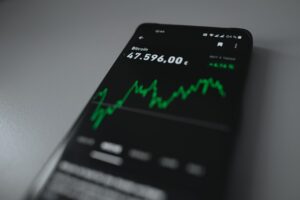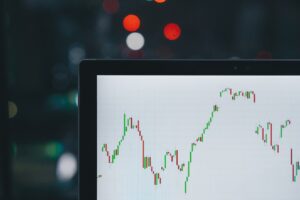Analyzing the Impact of Political Events on Forex Correlations
The foreign exchange market, or forex, is a decentralized global market where currencies are traded. It is the largest and most liquid market in the world, with trillions of dollars exchanged daily. Forex traders analyze various factors to make informed trading decisions, and one crucial aspect they consider is the impact of political events on forex correlations.
Political events can greatly influence currency correlations and have a significant impact on forex markets. These events can range from elections and government policy changes to geopolitical conflicts and economic crises. Understanding how political events affect currency relationships is essential for forex traders to anticipate market movements and manage their risks effectively.
One of the ways political events influence forex correlations is through changes in interest rates. Central banks across the world have the power to adjust interest rates to control inflation and stimulate economic growth. Political events can influence central bank decisions, which, in turn, affect currency values and correlations.
For example, when a country experiences political stability and positive economic indicators, central banks might decide to raise interest rates. Higher interest rates attract foreign investors looking for better returns on their investments, leading to an increase in demand for that country’s currency. As a result, the currency’s value appreciates, and its correlation with other currencies may change.
Alternatively, during times of political uncertainty or economic downturns, central banks may lower interest rates. Lower interest rates make investments in that country less attractive, leading to a decrease in demand for its currency. Consequently, the currency’s value depreciates, altering its correlation with other currencies.
Political events can also impact forex correlations through changes in trade policies and agreements. When political leaders implement protectionist measures, such as tariffs and trade restrictions, it can disrupt established trade relationships and affect currency correlations.
For instance, if a country imposes tariffs on imported goods, it can lead to retaliation from trading partners and trigger a trade war. The uncertainty surrounding trade relationships can increase market volatility and impact currency values. As a result, forex correlations may shift as traders reevaluate the risks associated with specific currencies.
Geopolitical conflicts and events also have a profound effect on forex correlations. When tensions rise between nations, investors often seek safe-haven assets to protect their investments from potential economic and political uncertainties. Traditionally, safe-haven currencies include the US dollar, Japanese yen, and Swiss franc. Consequently, during geopolitical turmoil, these currencies tend to strengthen, while others may weaken.
For instance, during the Brexit referendum in 2016, the British pound experienced significant volatility and a sharp decline in value. The uncertainty surrounding the UK’s exit from the European Union led investors to sell the pound and seek safer alternatives. As a result, the pound’s correlation with other currencies, especially those of its major trading partners, changed dramatically.
Political events can also impact forex correlations indirectly through changes in investor sentiment. When political events create uncertainty and market instability, investors often become risk-averse and seek safer investments. As a result, they may sell currencies of countries experiencing political turmoil and buy currencies of more stable nations. This shift in investor sentiment can alter forex correlations as traders reassess the relative strengths and weaknesses of different currencies.
In conclusion, political events play a significant role in shaping forex correlations. Changes in interest rates, trade policies, geopolitical conflicts, and investor sentiment all contribute to the impact of political events on forex markets. Forex traders need to closely monitor political developments and their potential consequences to make informed trading decisions. By understanding the relationship between politics and forex correlations, traders can better anticipate market movements, manage risks, and maximize their profit potential.





